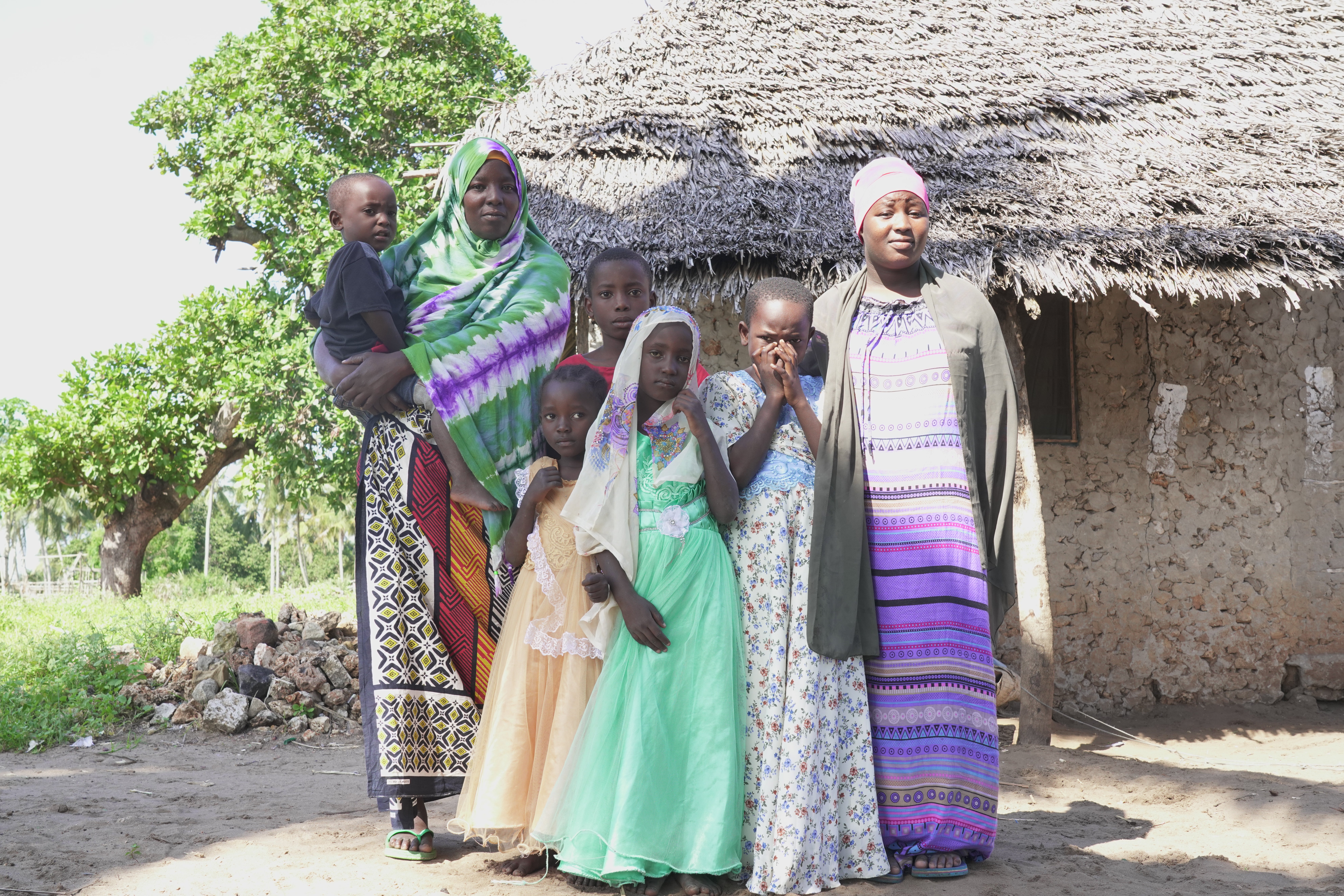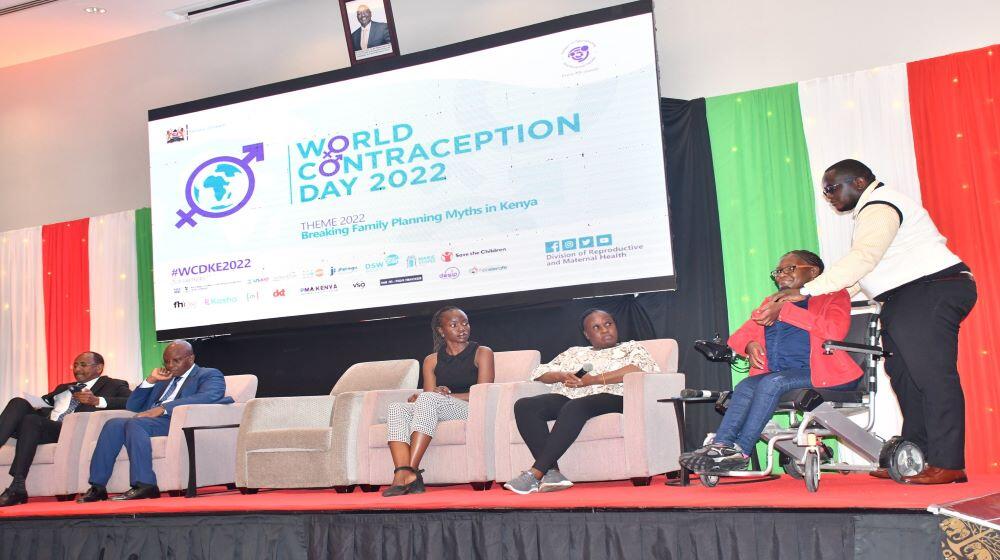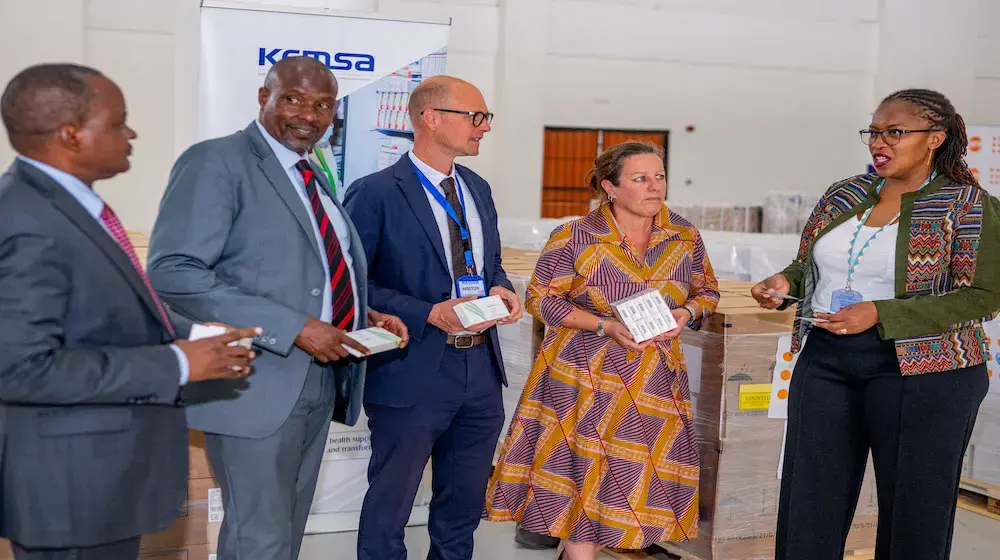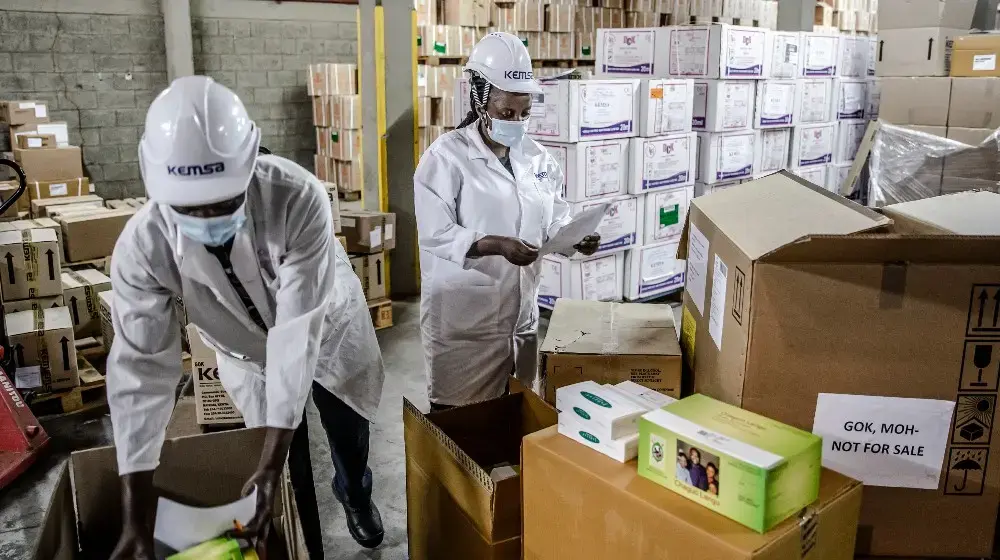32-year-old mother of six Halima Salim Mtambwe’s life changed for the better when a midwife at the Msambweni sub-county hospital in Kwale county counseled her on the use of contraceptives. “I had a baby that was barely one year old and still breastfeeding, and yet was pregnant with another,” she says. “In addition, I had four other children who needed my care, and was constantly worried about how I would feed and educate them.”

to a midwife who helped dispel common myths about contraceptives.
Following the delivery of her fifth child, Halima agreed to take up family planning after being educated on the various methods available and how they work. “I avoided contraceptives all along because I had been told that they can make you sick and interfere with your sex drive,” says Halima. For 38-year-old Kwale resident Ndzandze Shombo, the belief that using contraceptives would cause her to be infertile led her to be fearful of many modern family planning methods. Both Halima and Ndzandze are able to access contraceptive methods of their choice from health facilities in Kwale, which are supplied through support from UNFPA.
Such myths and misconceptions fuel a reduction in the uptake of contraceptives, which leads to unintended pregnancies, unsafe abortions, as well as poor health outcomes for mothers and children. “Despite our successes in family planning service provision, myths, misinformation, and misconceptions around modern contraceptives are an existential threat to family planning uptake ,” says the Head of Promotive and Preventive Services at the Ministry of Health, Dr. Andrew Mulwa.
In Kenya, the unmet need for Family Planning is estimated to be at 16%, meaning over 1.6 million women of reproductive age, who would like to use a Family Planning method cannot do so, due to a range of barriers. “In particular, the youth below the age of 25 constitute approximately 66% of the country’s population and are the most vulnerable constituency to myths and misinformation, ” adds Dr. Mulwa
On World Contraception Day, UNFPA Kenya joined partners including the Ministry of Health, the National Population Council (NCPD), and the donor community in tackling misinformation around contraception, with a call for improved sexual and reproductive health literacy to address contraceptive fears. The day served as a moment to engage the youth, media, civil society, healthcare workers and other key actors in dispelling myths and misconceptions on contraceptives, including through a one-week social media campaign to reach the youth with key facts on family planning.
“We are committed to ensuring that information on voluntary family planning is universally accessible to all women of reproductive age and to the youth, in order to empower them with the right knowledge to plan their desired families,” said NCPD Director General Dr. Mohamed Sheikh.
Speaking during the celebrations, UNFPA representative in Kenya Anders Thomsen said that UNFPA is working on a range of responses aimed at overcoming harmful narratives around contraception, including changing discriminatory social norms that shape behaviors and decisions related to family planning, as well as the training of healthcare workers in the provision of youth-friendly sexual and reproductive health services.
“UNFPA is also committed to working with the Government of Kenya and partners including the donor community to ensure that family planning services and supplies have sustained funding support, as well as strengthening the supply chain so that contraceptives reach those who need them, up to the last mile,” said Mr. Thomsen.




